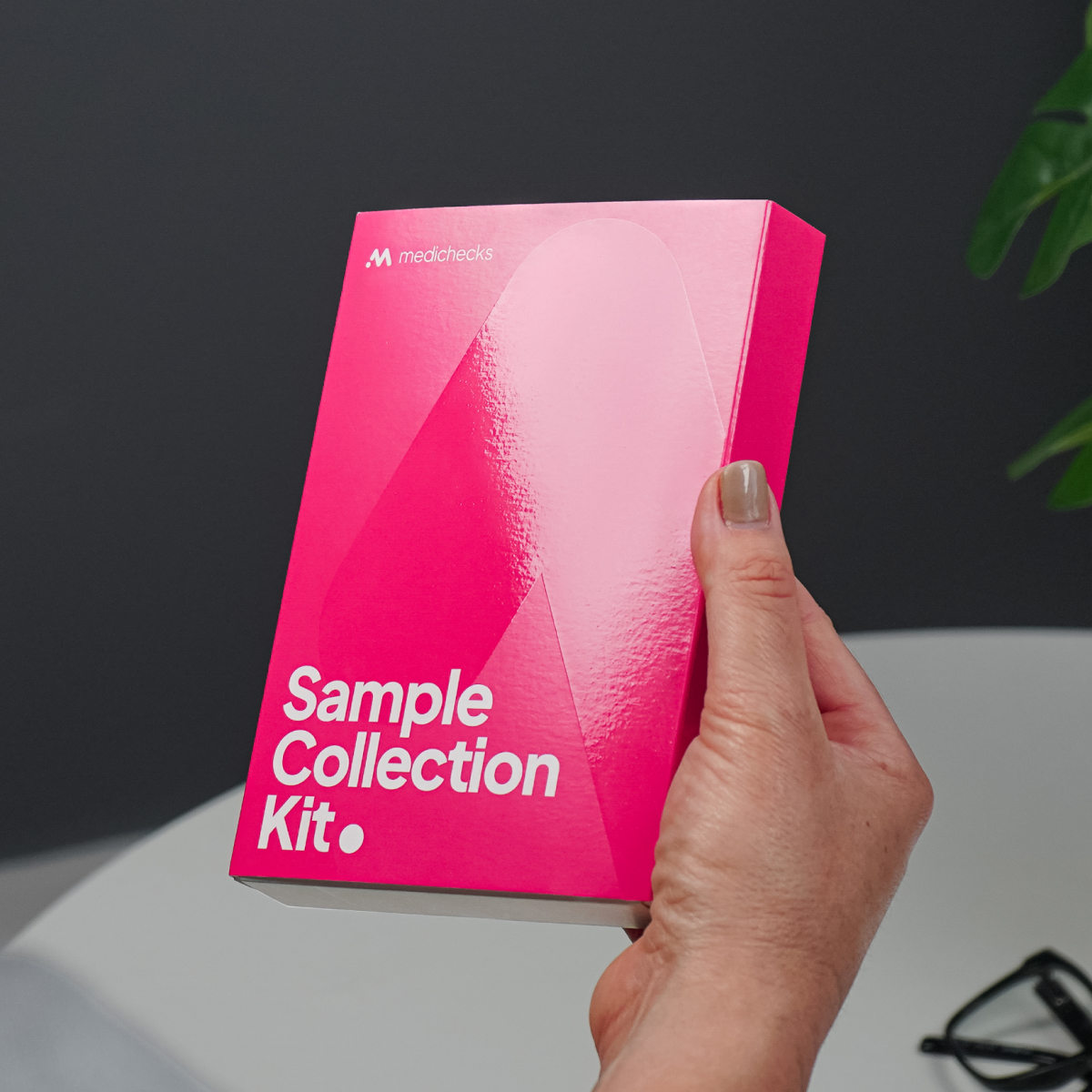By Dr. Susanna Hayter, GP and Medichecks Digital Clinician.
The popularity of the new GLP-1 weight loss injections is hard to ignore. Ozempic, Wegovy and Mounjaro seem to be one of this year’s most talked about subjects.
In December 2024, the National Institute for Clinical Excellence (NICE), who assess the safety, efficacy and cost implications of treatments in the UK, published guidance that supports the prescribing of these medicines for patients with obesity.
The eligibility criteria to be prescribed this medication were for patients with: BMI ≥ 35 kg/m² + at least 1 weight-related comorbidity (lower BMI thresholds apply for some ethnic groups).
As this would financially overwhelm the NHS there was agreed to be a passed roll out. In June 2025 there was a major update as the first phase of roll out began in some areas. As it stands, currently GPs are only allowed to prescribe for patients with a BMI over 40 with 4 specified co-morbidities. In 2026 the next phase of eligibility will open up.

The NHS-recognised comorbidities for this pathway include:
- Type 2 diabetes
- Hypertension (high blood pressure)
- Dyslipidaemia (e.g. high cholesterol or triglycerides)
- Obstructive sleep apnoea
- Osteoarthritis (especially weight-bearing joints)
- Non-alcoholic fatty liver disease (NAFLD) or NASH
- Cardiovascular disease (e.g. angina, prior MI, stroke, heart failure)
- Polycystic ovary syndrome (PCOS)
- Gastro-oesophageal reflux disease (GORD)
- Depression or anxiety linked to obesity
- Asthma (if weight contributes to poor control)
- Mobility limitations caused by weight
- Infertility/subfertility related to weight
- Urinary incontinence due to obesity
This means currently, many patients who would benefit cannot access these medications safely via their GP and are looking to private or online providers.
While NICE has checked the safety and the likely health benefits of these types of medications, there are, with any medication, important individual risks that should be taken into account before buying and self-administering drugs like Mounjaro and Ozempic / Wegovy.

Safety Considerations
The most common side effects are Gastrointestinal – Nausea, vomiting, diarrhoea, constipation, bloating. These are usually short lasting and dose dependent but can be significant in some patients and side effects can last 1 week until the dose wears off.
Gallstones and Pancreatitis – There is an increased risk of Gallstones and Pancreatitis. Gallstones and gallbladder disease occurs in people who may be susceptible and who experience rapid weight loss. Pancreatitis is rare but serious. GLP-1 medications have been shown to have a small increased risk of acute pancreatitis. So patients who develop sudden severe abdominal pain, nausea or vomiting should be seen urgently to check for this. This is even more significant in patients with diabetes.
Thyroid safety – In rodents, GLP-1 drugs caused thyroid C-cell cancer. However, rats are known to have a high incidence of this type of tumour. In humans, this has NOT been observed, but it is contraindicated in individuals with a personal or family history of medullary thyroid carcinoma or MEN2 (multiple endocrine neoplasia type 2). We also lack information on the long-term use of these medications, as they have not been used widely over a long period. Short-term use for weight loss is unlikely to be significant.
Kidney function – Care should be taken in patients with pre-existing kidney disease as fluid losses or poor fluid intake can impact kidney function.
Heart and blood pressure – Generally the weight loss benefits from using GLP-1 medications is cardioprotective and significantly lowers the risk of heart attacks/strokes. However, caution may be needed in some patients as they can lower blood pressure, sometimes causing dizziness.
Muscle and hair loss – There are a significant number of patients who do experience significant hair loss on the GLP-1 analogue medications. This can be either due to nutritional shifts or a direct hormonal affect. In addition, there can be lean body mass loss and so maintaining a high protein intake and regular exercise is very important in patients losing a significant amount of weight.
Hormonal Concerns – Recently, the effect of GLP-1 drugs, and more specifically the more potent Dual acting GLP-1/GIP drug Mounjaro (Tirzepatide), on hormones has become a concern.
The 2 main areas of concern are for women on the progestogen-only pill such as Cerazette, Cerelle, Desogestrel or any “mini pill” and for women taking oral progesterone orally, such as Utrogestan, for their hormone replacement therapy to protect their womb lining.

Why the Concern?
GLP-1 medications delay gastric emptying. This can interfere with drug absorption.
This is not specific to just hormones, but with hormones reduced absorption levels will affect the bioavailability of the drugs – reducing the efficacy of oral contraception in women of childbearing age (hence risking unwanted pregnancy), or the cancer protective effects of progesterone for women on hormone replacement therapy.
While the single GLP-1 drugs such as Wegovy and Ozempic have not been shown to affect the bioavailability of the combined oral contraceptive pill (COCP), the newer dual agent, Mounjaro, which is gaining popularity as deemed more effective, has shown a potential reduction of up to 66% in the peak level of COCP. The effect is likely to be more sizeable in progesterone only preparations which is a real worry.
The newer Tirzepatide (Mounjaro) is a dual-action drug that not only acts on the GLP1a receptor but also the glucose-dependent insulinotropic polypeptide (GIP) receptor, giving more potent effects. We are still not clear as to the reduction it will have on the POP, which is the more commonly used form of oral contraception, in obese women.

What advice is there to reduce the risk of the interaction between Mounjaro and Progesterone Hormones?
The British Menopause Society recommend doctors to consider changing women to a non-oral progesterone method- encouraging the use of the Mirena Coil for endometrial protection before initiation of Mounjaro or to increase dose of progestogen/progesterone at initiation for four weeks, and maintain higher dose for four weeks after any dose increment
The Faculty of Sexual and Reproductive Healthcare (FSRH) recommends alternative (non-oral) methods of contraception, or to add barrier methods for 4 weeks after initiation of Mounjaro and after every dose increase.
If you are taking any form of hormone therapy, check your specific risk with your NHS GP before commencing any weight loss treatments.
With all medications, there are risks and benefits. Before starting on any GLP-1 analogue injections, I would always advise seeking the advice of a registered medical practitioner, especially if you have underlying health concerns. Remember, you can always check your health relevant to your medical conditions using the Medichecks blood tests both before and after starting these types of medications to help you make informed decisions about your health and wellbeing.
About the expert
 Dr. Susanna Hayter has been a digital clinician at Medichecks, the UK’s first direct-to-consumer blood testing service, since June 2024. After qualifying in 1999 from Guy’s and St. Thomas’ Hospital, London, she holds both an MBBS and a BSc in Pharmacology. After completing her GP training in 2002 she worked as a GP partner until 2014 when Dr. Hayter established her own successful medical aesthetics and health clinic. Dr Hayter combines evidence-based medicine with a patient-centred approach and since 2019, she has been providing weight loss treatments with GLP-1 analogues and has developed extensive expertise in the use of medications for weight management.
Dr. Susanna Hayter has been a digital clinician at Medichecks, the UK’s first direct-to-consumer blood testing service, since June 2024. After qualifying in 1999 from Guy’s and St. Thomas’ Hospital, London, she holds both an MBBS and a BSc in Pharmacology. After completing her GP training in 2002 she worked as a GP partner until 2014 when Dr. Hayter established her own successful medical aesthetics and health clinic. Dr Hayter combines evidence-based medicine with a patient-centred approach and since 2019, she has been providing weight loss treatments with GLP-1 analogues and has developed extensive expertise in the use of medications for weight management.


